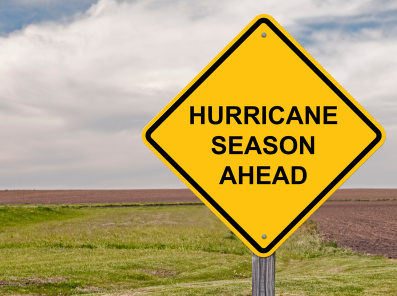National Hurricane Preparedness Week is May 9 –15

Cleco encouraging customers to get ready for hurricane season
PINEVILLE, La. – May 10, 2021 – Yesterday was the start of National Hurricane Preparedness Week, and Cleco is encouraging customers to use this time to prepare for the Atlantic hurricane season which officially begins June 1 and ends Nov. 30.
This initiative, led by the National Weather Service, is a nationwide effort to build a weather-ready nation before there is a storm. Each day during Hurricane Preparedness Week, the National Weather Service focuses on a different hurricane-related topic to help individuals and communities prepare. See topics at https://www.weather.gov/wrn/hurricane-preparedness.
“Hurricane season is right around the corner, and researchers are predicting another above-average Atlantic hurricane season,” said James Lass, director of distribution operations and emergency management. “While this is an early projection and subject to change, it's always better to be prepared."
In their first forecast for the season, researchers at Colorado State University (CSU) have forecasted 17 named storms and expect eight to become hurricanes and four to become major hurricanes (Category 3 or higher). According to CSU, an average season is one with 14 named storms, seven hurricanes and three major hurricanes.
“Last year's hurricanes, including the pandemic, taught us to expect the unexpected, so now is a good time to review your plan or develop a plan if you don’t already have one, replenish supplies in your emergency storm kit and review your insurance policies,” said Lass. “We know from experience that hurricanes can be deadly and cause significant damage, including extended power outages.”
In 2020, Cleco Power’s service area was hit by three hurricanes, Laura, Delta and Zeta, in just two months.
Below are steps customers can take to prepare for the 2021 hurricane season:
- Prepare a storm kit – gather supplies you might need during a power outage, including flashlights, batteries, canned food, manual can opener, bottled water, medication and a first aid kit.
- Develop an evacuation plan in case you have to evacuate.
- Test your generator to make sure it’s working.
- Have a battery-powered radio to receive updates broadcast by the media.
- Review your insurance policies.
- Take pictures or video of the inside and outside areas of your home or business for potential insurance needs.
- Plan ahead for medical or special needs.